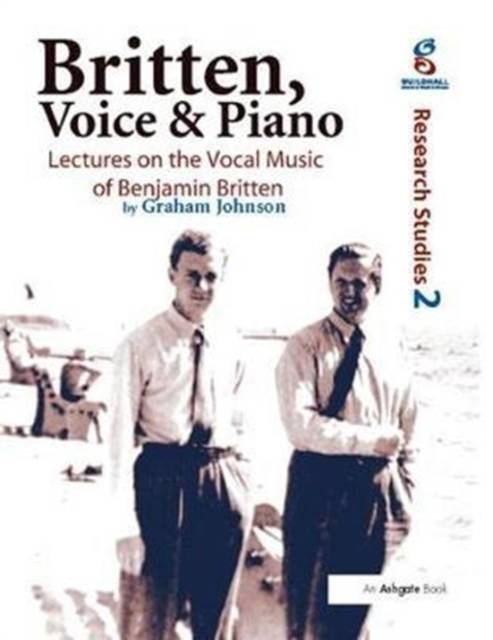
- Afhalen na 1 uur in een winkel met voorraad
- Gratis thuislevering in België vanaf € 30
- Ruim aanbod met 7 miljoen producten
- Afhalen na 1 uur in een winkel met voorraad
- Gratis thuislevering in België vanaf € 30
- Ruim aanbod met 7 miljoen producten
Zoeken
Britten, Voice and Piano
Lectures on the Vocal Music of Benjamin Britten
Graham Johnson
Hardcover | Engels
€ 236,95
+ 473 punten
Uitvoering
Omschrijving
This collection of eight 'lectures' by internationally acclaimed pianist, Graham Johnson, is based on a series of concert talks given at the Guildhall School of Music and Drama as part of the Benjamin Britten festival in 2001. The focus of the book is on Britten's songs, starting with his earliest compositions in the genre. Graham Johnson suggests that the nature of Britten's creativity is especially apparent in his setting of poetry, that he becomes the poet's alter-ego. A chapter on Britten's settings of Auden and Eliot explores the particular influences these writers brought to bear at opposite poles of the composer's life. The inspiration of fellow musicians is also discussed, with a chapter devoted to Britten's time in Russia and his friendship with the Rostropovitch family. Closer to home, the book places in context Britten's folksong settings, illustrating how he subverted the English folksong tradition by refusing to accept previous definitions of what constituted national loyalty. Drawing on letters and diaries, and featuring a number of previously unpublished photographs, this book illuminates aspects of Britten's songs from the personal perspective of the pianist who worked closely with Peter Pears after Benjamin Britten was unable to perform through illness. Johnson worked with Pears on learning the role of Aschenbach in 'Death in Venice' and was official pianist for the first master class given by Peter Pears at Snape in 1972.
Specificaties
Betrokkenen
- Auteur(s):
- Uitgeverij:
Inhoud
- Aantal bladzijden:
- 280
- Taal:
- Engels
Eigenschappen
- Productcode (EAN):
- 9781138400542
- Verschijningsdatum:
- 18/07/2017
- Uitvoering:
- Hardcover
- Formaat:
- Genaaid
- Afmetingen:
- 189 mm x 246 mm
- Gewicht:
- 679 g

Alleen bij Standaard Boekhandel
+ 473 punten op je klantenkaart van Standaard Boekhandel
Beoordelingen
We publiceren alleen reviews die voldoen aan de voorwaarden voor reviews. Bekijk onze voorwaarden voor reviews.











